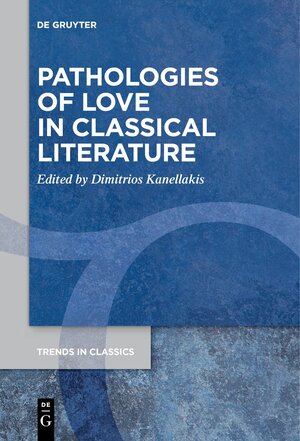
„This volume appears to have been, both literally and metaphorically, a ‘labour of love’. [...] This is not a hastily thrown together collection of contributions: this is a careful, integrated and thought-provoking volume with common threads of interest and shared goals. [...] For the scholar, this book is fascinating and delightful. In keeping with the theme of the desirous gaze, it is a suitably handsome book to own, look at, admire, consult and read closely. It features several alluring colour illustrations from classical and modern art; immaculate quotations from Greek and Latin presented alongside English translations; a helpful anthology of ancient sources; an extensive bibliography; and an excellent index locorum and general index. What more could the scholar of erôs ask for?“ Sonia Pertsinidis in: Classical Review 2022.
Pathologies of Love in Classical Literature
herausgegeben von Dimitrios KanellakisDo you believe in love at first sight? The Greeks and the Romans certainly did. But far from enjoying this romantic moment carefree, they saw it as a cruel experience and an infection. Then what are the symptoms of falling in love? Are there any remedies? Any form of immunity?
This book explores the conception of love (erôs) as a physical, emotional, and mental disease, a social-ethical disorder, and a literary unorthodoxy in Greek and Latin literature. Through illustrative case studies, the contributors to this volume examine two distinct, yet historically and poetically interrelated traditions of ‘pathological love’: lovesickness as/similar to disease and deviant sexuality described in nosologic terms. The chapters represent a wide range of genres (lyric poetry, philosophy, oratory, comedy, tragedy, elegy, satire, novel, and of course medical literature) and a fascinating synthesis of methodologies and approaches, including textual criticism, comparative philology, narratology, performance theory, and social history. The book closes with an anthology of Greek and Latin passages on pathological erôs. While primarily aimed at an academic readership, the book is accessible to anyone interested in Classics and/or the theme of love.





